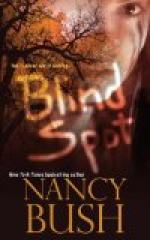The next I knew was the strong arms of my brother Hobart. He gave me the water he had fetched for Harry. He was terribly upset, but very calm. He held the glass up to my lips. He was speaking.
“Don’t worry. Don’t worry. I know now. I think I know. I was just in time to see them go. I heard the bell. Harry is safe. It is the Nervina. I shall get Harry. We’ll solve the Blind Spot.”
XIX
HOBART FENTON TAKES UP THE TALE
Right here at the outset, I had better make a clean breast of something which the reader will very soon suspect, anyhow: I am a plain, unpoetic, blunt-speaking man, trained as a civil engineer, and in most respects totally dissimilar from the man who wrote the first account of the Blind Spot.
Harry had already touched upon this. He came of an artistic family. I think he must have taken up law in the hope that the old saying would prove true: “The only certain thing about law is its uncertainty.” For he dearly loved the mysterious, the unknowable; he liked uncertainty for its excitement: and it is a mighty good thing that he was honest, for he would have made a highly dangerous crook.
Observe that I use the past tense in referring to my old friend. I do this in the interests of strict, scientific accuracy, to satisfy those who would contend that, having utterly vanished from sight and sound of man, Harry Wendel is no more.
But in my own heart is the firm conviction that he is still very much alive.
Within an hour of his astounding disappearance, my sister, Charlotte, and I made our way to an hotel; and despite the terrible nature of what had happened, we managed to get a few hours rest. The following morning Charlotte declared herself quite strong enough to discuss the situation. We lost no time.
It will be remembered that I had spent nearly the whole of the preceding year in South America, putting through an irrigation scheme. Thus, I knew little of what had occurred in that interval. On the other hand, Harry and I had never seen fit to take Charlotte into our confidence as, I now see, we should have done.
So we fairly pounced upon the manuscript which Harry had left behind. And by the time we had finished reading it, I for one, had reached one solid conclusion.
“I’m convinced,” I said, “that the stranger—Rhamda Avec—is an out-and-out villain. Despite his agreeable ways, I think he was solely and deliberately to blame for Professor Holcomb’s disappearance. Consequently, this Rhamda is, in himself, a very valuable clue as to Harry’s present predicament.”
Referring to Harry’s notes, I pointed out the fact that, although Avec had often been seen on the streets of San Francisco, yet the police had never been able to lay hands on him. This seemed to indicate that the man might possess the power of actually making himself visible or invisible, at will.




